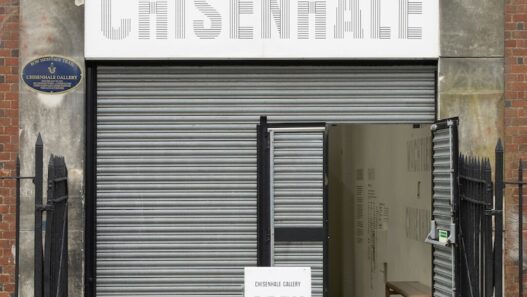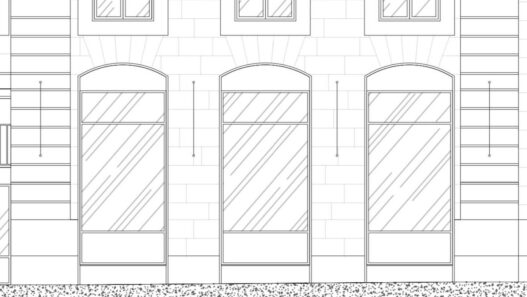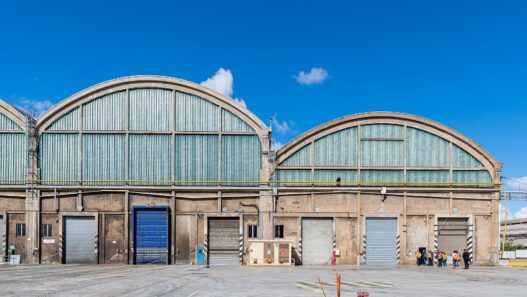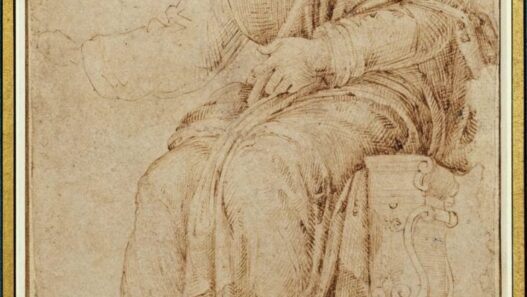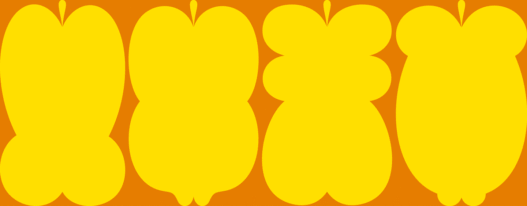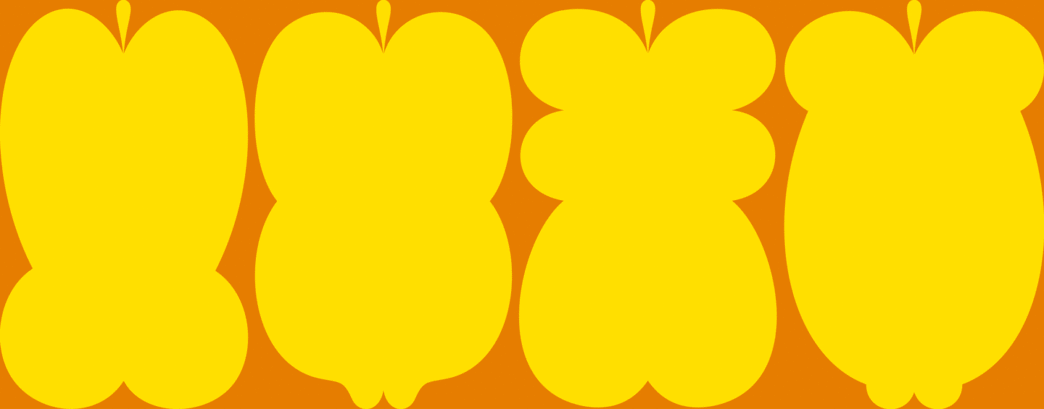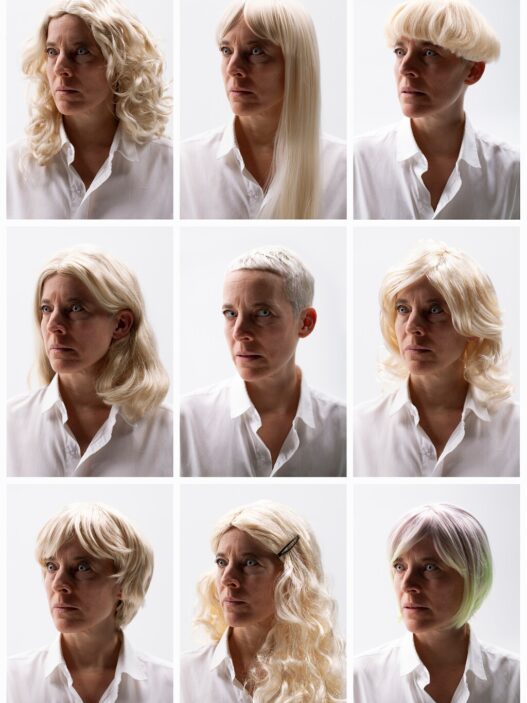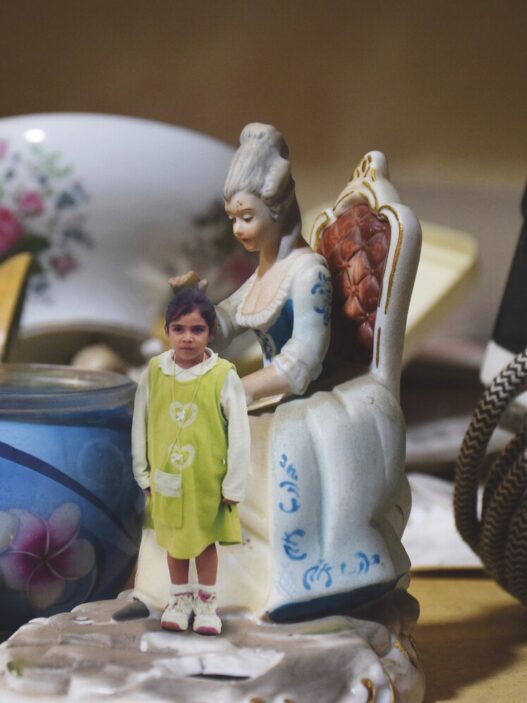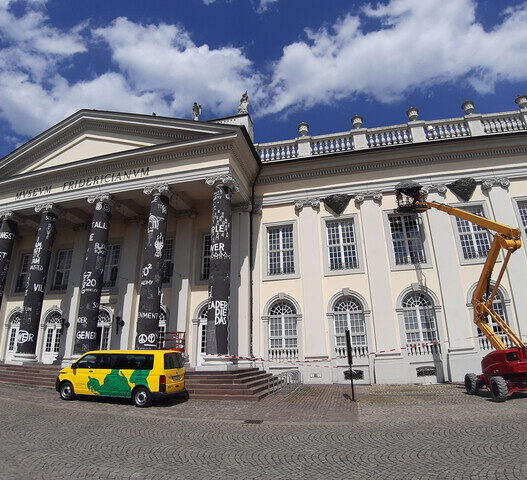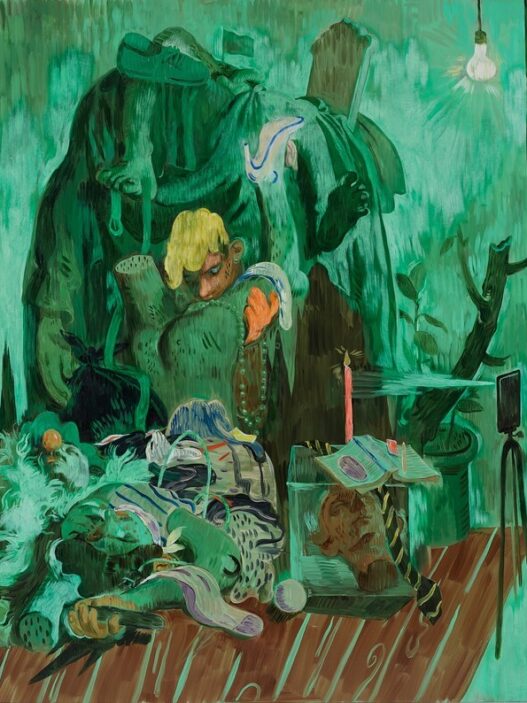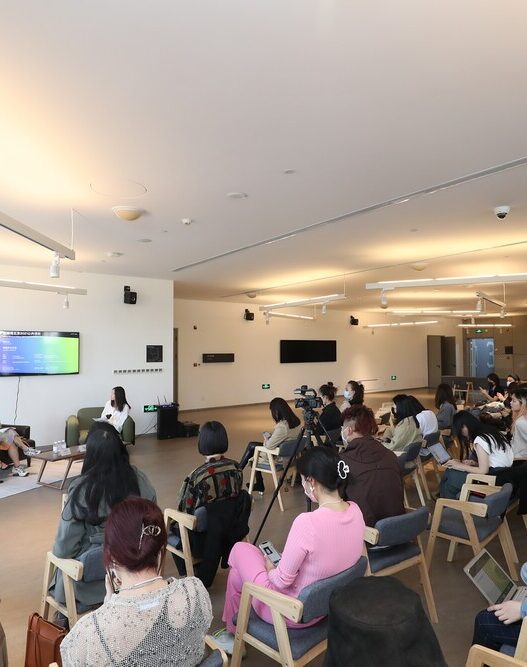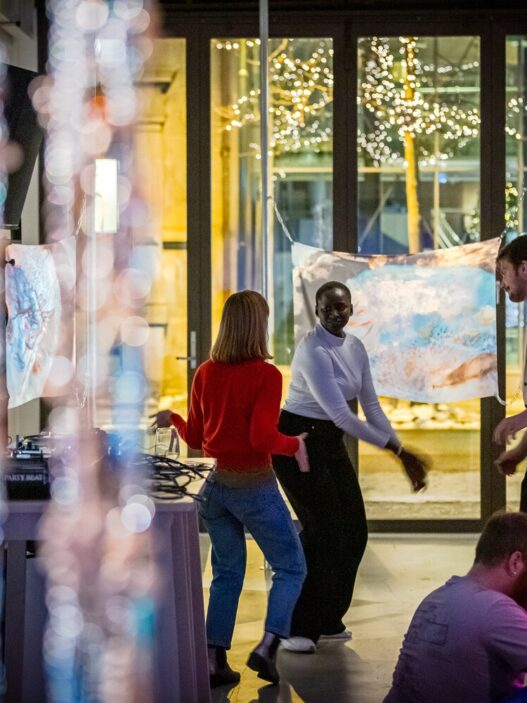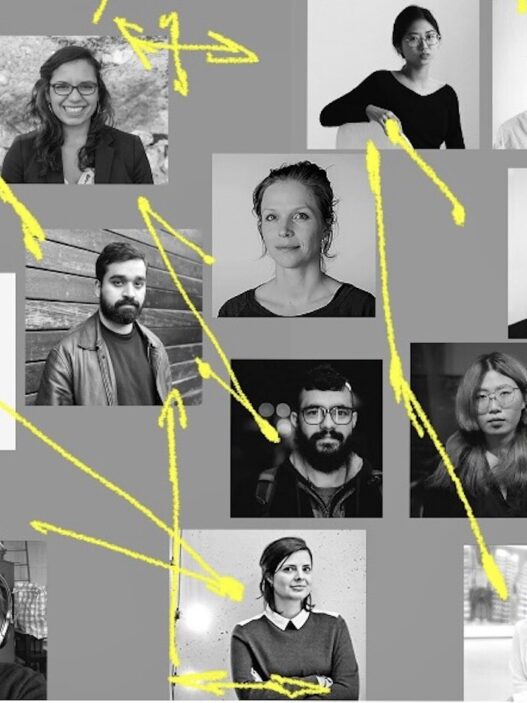June 10–19, 2022
Every June, at der TANK, the exhibition space of the Institute Art Gender Nature at the FHNW Academy of Art and Design in Basel, we showcase a special project. Around 30 paintings by Peter Klein are reunited in this year’s exhibition. Blumen blühen, where bist du? is the artist’s first institutional exhibition in Switzerland, as well as one of his first in a long time. Before settling in Ernen, Valais, in Switzerland, he created two families of works: dwellings and flowers, which he did in the 1970s and 1980s.
His biography—he was born in Romania as a German, educated in Bucharest and Munich, and has lived in “exile” in Switzerland since the 1980s—as well as the subject matter of his work seem especially timely now. Cultural transformations, aesthetic research, and borders that do not necessarily intersect with the identities of the inhabitants of a location form the foundation of a powerfully emotional artistic work. Displacement is also to fault for his near-invisibility in exhibition programming. Peter Klein has based his life and practice in a small Swiss mountain village, where he has worked as an artist and art teacher without necessarily seeking inclusion in exhibition programs in Swiss centers.As a result, this talk is a once-in-a-lifetime opportunity to not only learn about his work, but also to observe a way of believing in the rural that has been prominent in our discussions since the Covid-19 pandemic.
The aesthetic language of Peter Klein is straightforward. His work has a strong belief in form and composition, which he considers to be the two most important techniques for structuring a picture. Pigment, on the other hand, accentuates the message we usually transmit onto the canvas. Color is a mood indicator. Structure is referred to as form. A structure that speaks to the self, the ability to stand, the question of being cared for, and being housed. Home can be a flower, but it can also be a burden. Inverted forms and proportions speak to the necessity to reconsider all of the classifications and conceptions of belonging that have been imposed on us through ages. Individually and collectively, we share certain beliefs that bind us together. What if everything we believe vanishes?We know that this is the reality for many millions of people who not only see their houses vanish but also have to deal with the hardships of being absorbed into the dreams of another group.
The presentation and the selection of the work has been possible thanks to the very active help of Peter Klein’s son, Emil Michael Klein.
—Chus Martínez
Peter Klein was born in 1953 in Schässburg/Sighișoara in Romania and attended the Institutul de Arte Plastice Nicolae Grigorescu in Bucharest. In 1973 he emigrated to West Germany, studied painting with Günter Fruhtrunk at the Academy of Fine Arts Munich and graduated as “Meisterschüler”. Subsequently, he completed a pedagogical training. In 1984 Peter Klein moved to Switzerland with his wife Ursula Klein. They settled in the Valais village of Ernen in 1990 with their children Lena, Flora and Emil Michael, where Peter Klein continued his artistic work until he went blind in 2019. In the 1980s, he was head of the painting studio at the Stadttheater in Bern. During his time in Valais, he was a teacher of design and art in Brig. Peter Klein exhibited rarely, the few exceptions took place in Kassel in the 1980s and in 2014 together with Flora and Emil Michael Klein in the Kunstverein Oberwallis, among others. Blumen blühen, wo bist du? is his first institutional solo exhibition in Switzerland.
The opening on Wednesday, June 15, 2022, 6pm will also mark the release of the publication LIKE THIS. Natural Intelligence As Seen by Art, specially commissioned works for der TANK 2016–2021 supported by [N.A!] Project; in collaboration with Hatje Cantz. LIKE THIS. Natural Intelligence As Seen by Art brings together a series of specific commissions for der TANK: ten projects by Mathilde Rosier, Julieta Aranda, Cecilia Bengolea, Eduardo Navarro, Ingela Ihrman, Teresa Solar, Beatriz Santiago Muñoz, Raffaela Naldi Rossano, Alessandro De Francesco, and Gil Pellaton, presented at der TANK between 2016 and 2021. Conceived by Chus Martínez these commissions all share a common denominator: their interest in exploring all the possible dimensions of our relationship with nature. And they all share a common ally and friend in the [N.A!] Project and its founder Bertrand Jacoberger. LIKE THIS. Natural Intelligence As Seen by Chus Martínez is published by the Institute Art Gender Nature, FHNW Academy of Art and Design, Basel, and Hatje Cantz Verlag, Berlin.
Curated by Chus Martínez
Curatorial assistance Marion Ritzmann
Freilager-Platz 1
Institute Art Gender Nature, FHNW Academy of Art and Design
CH-4002 Basel
Switzerland
[email protected]


